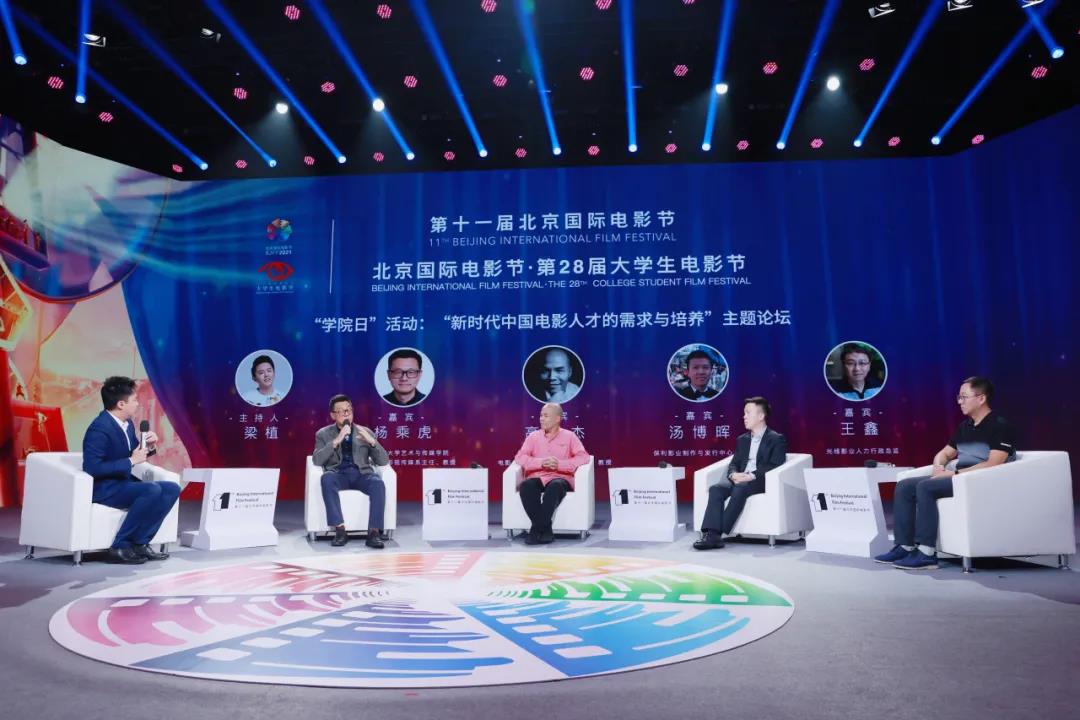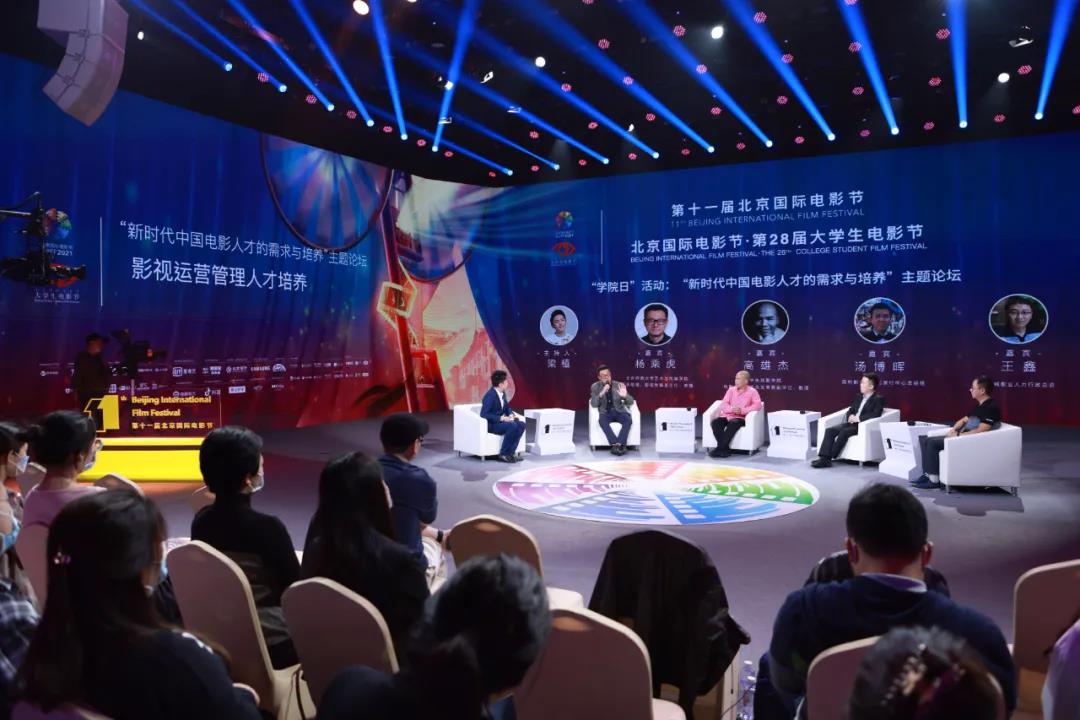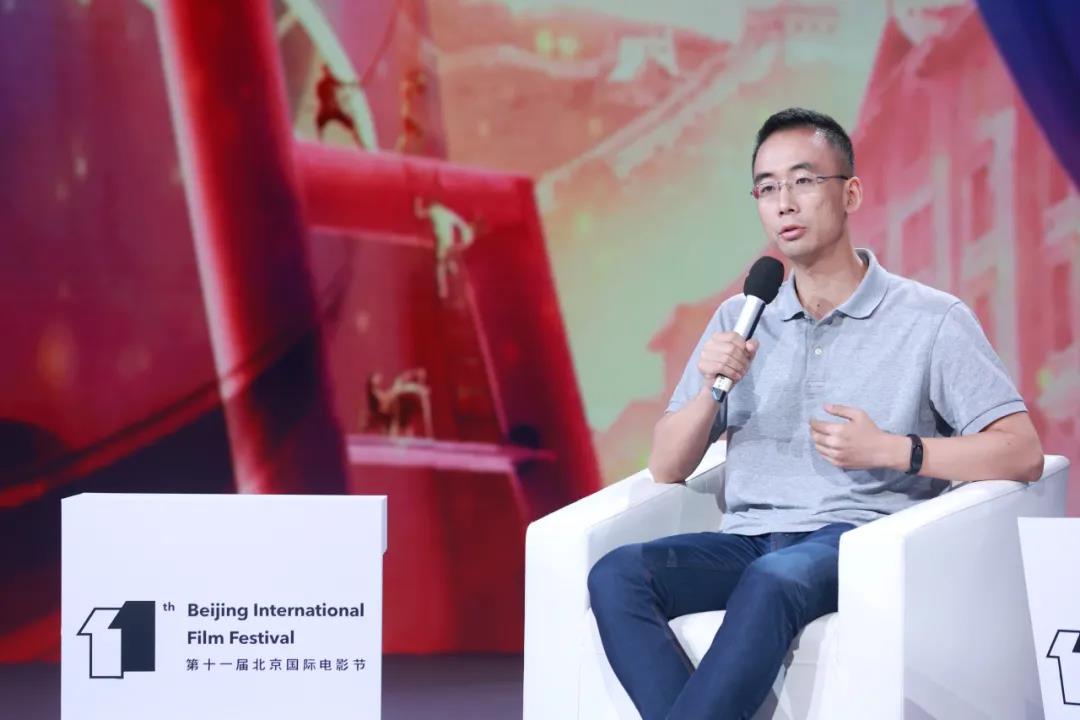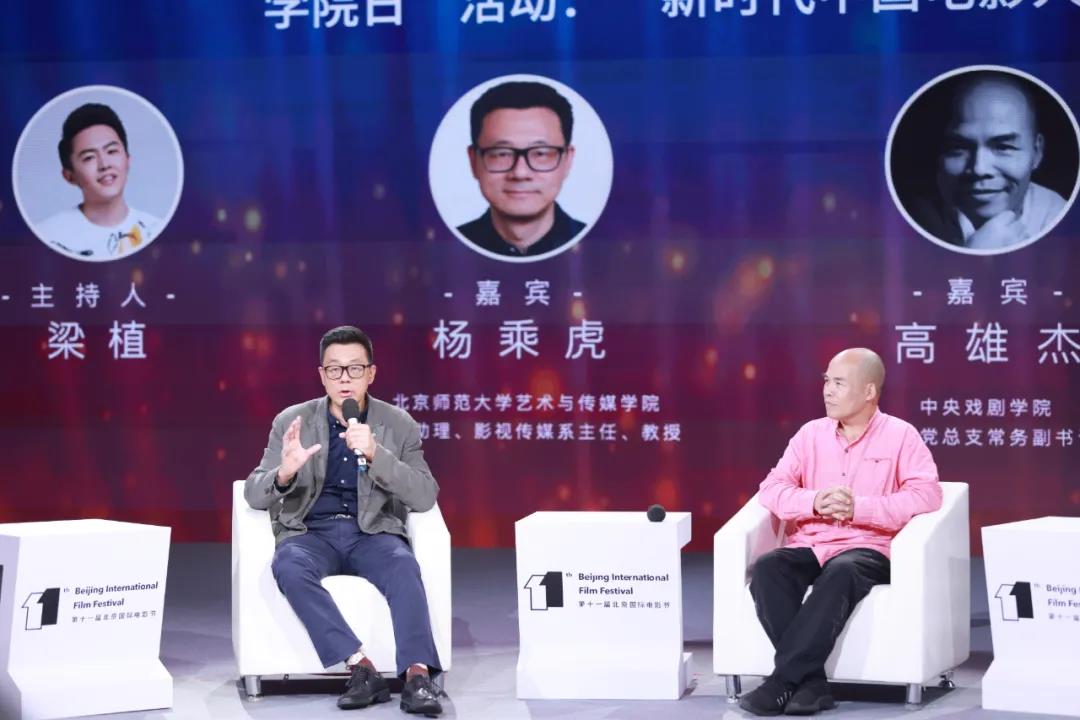The 11th BJIFF
"Demand for Chinese Film Talents and Talent Training in the New Era"--Academy Day Theme Forum Concludes Successfully
The "Demand for Chinese Film Talents and Talent Training in the New Era"--Academy Day Theme Forum co-hosted by the Beijing International Film Festival (BJIFF) and BJIFF · 28th Beijing College Student Film Festival was live streamed on September 23, 2021. Seven renowned scholars from film disciplines and senior insiders from the industry were present to discuss how film education can provide high-level, high-quality and professional talents for the industry in the new era.

Demand for Chinese Film Talents and Talent Training in the New Era" Theme Forum
At beginning, professor Xiao Xiangrong, Dean of School of Art & Communication, Beijing Normal University, and Executive Vice Chairman of the BJIFF · 28th Beijing College Student Film Festival addressed the forum. He acknowledged the significance of the theme forum "Demand for Chinese Film Talents and Talent Training in the New Era" to the era and industry since there is urgent demand for senior talents who know both production and management, and for versatile talents with profound cultural knowledge and strong innovation capability.

"Demand for Chinese Film Talents and Talent Training in the New Era" Theme Forum
In the first part "Training of Creative Film Production Talents", Yang Chenghu, assistant to the dean of the School of Arts & Communication, head of the Department of Film and Media, Beijing Normal University, Qi Hong, professor and deputy head of the Department of Cinematography, Beijing Film Academy, Liang Junjian, associate professor and doctoral supervisor at School of Journalism and Communication, Tsinghua University, and Cai Min, Executive Deputy General Manager of Beijing Cultural Investment Holdings Co., Ltd. hosted the dialogue. The three scholars expressed their definition of "Excellent Creative Production Talent" and concluded that "an excellent creative production talent is a person who utilizes audiovisual tools to tell good stories that combine the development of the era or touch people." Cai Min, a senior insider, believed that "good creative film production talents should further industrialize films so that more audiences can accept, recognize and fully expect the content we produce" from the perspective of film industrialization. The three scholars also shared their outlook of the fast-changing film industry and film discipline education. According to Yang Chenghu, "to achieve the goal of the era—build a film power and promote high-quality film development, three parties, namely universities, the industry and social organizations, are required to work together to build and explore more diverse cooperation and find a win-win future in multiple dimensions." Besides, in Qi Hong’s view, although the era of analog camera has passed, the pursuit of aesthetics should be kept as a principle that creative producers of Chinese films uphold in the new era. Liang Junjian, on the other hand, called on every walk of life to pay attention to films and film talent training. Cai Min, as a management personnel in the industry, expressed her hope to promote the training of film talents together with various colleges and universities to support the cultural confidence of the film industry.

"Demand for Chinese Film Talents and Talent Training in the New Era" Theme Forum
In the second part "Training of Film Operation & Management Talents", two scholars, namely Yang Chenghu, assistant to the dean of the School of Arts & Communication, head of the Department of Film and Media, Beijing Normal University, and Gao Xiongjie, Executive Deputy Director of Party Committee and professor at the Department of Film & TV Art, the Central Academy of Drama, Tang Bohui, General Manager of Poly Film Production and Distribution Center, and Wang Xin, HR Director of Enlight Media, shared their insights. In the discussion about the difference between "operation and management talents" and "creative production talents", Gao Xiongjie analyzed the similarities and differences between the two in terms of industry responsibilities, required competencies and the scope of work. Tang Bohui summarized the capabilities of "operation and management talents" include "picking the right script, finding the investment, forming a team and selling the film". Wang Xin believed that both types of talents are "content talents" who need to be sensitive to content, and there should be more hands-on practice in the training of film operation and management talents at colleges and universities. According to Yang Chenghu, it is important to fully understand that the two types of talents are involved in the industry system in different ways, and that the industry should maximize the intellectual advantages of "content talents", bring into play the value-added effectiveness of operation and management, so that the two may complement and facilitate each other. The guests also provided many practical experience and suggestions for young people who want to work on film operation and management, and they agreed that the training of film operation and management talents in the new era is the shared task and responsibility of universities, disciplines, industries and enterprises. Enterprises should express their demand for talents, and universities will supply talents accordingly in order to form an industry-wide virtuous circle.

"Demand for Chinese Film Talents and Talent Training in the New Era" Theme Forum
The two dialogues offered many practical experience and suggestions for all the practitioners-to-be in the film industry via live streaming, and established a platform for exchanges between film colleges and the industry. Stay tuned to coming events and activities of the 11th BJIFF and 28th Beijing College Student Film Festival.
